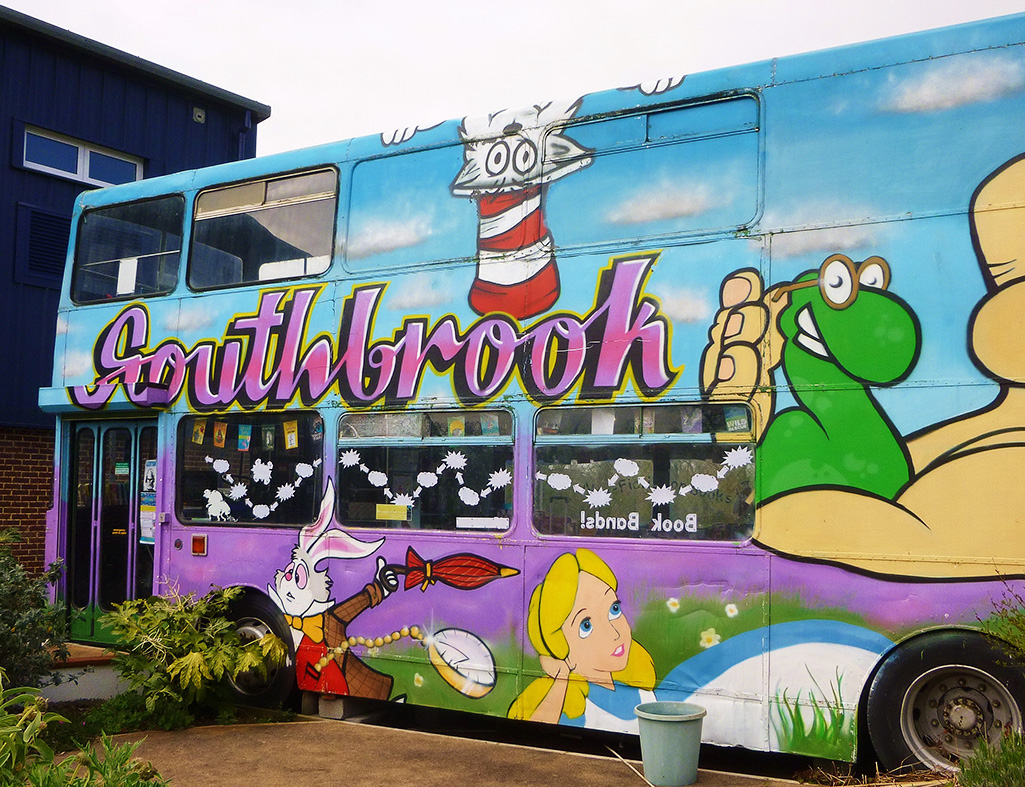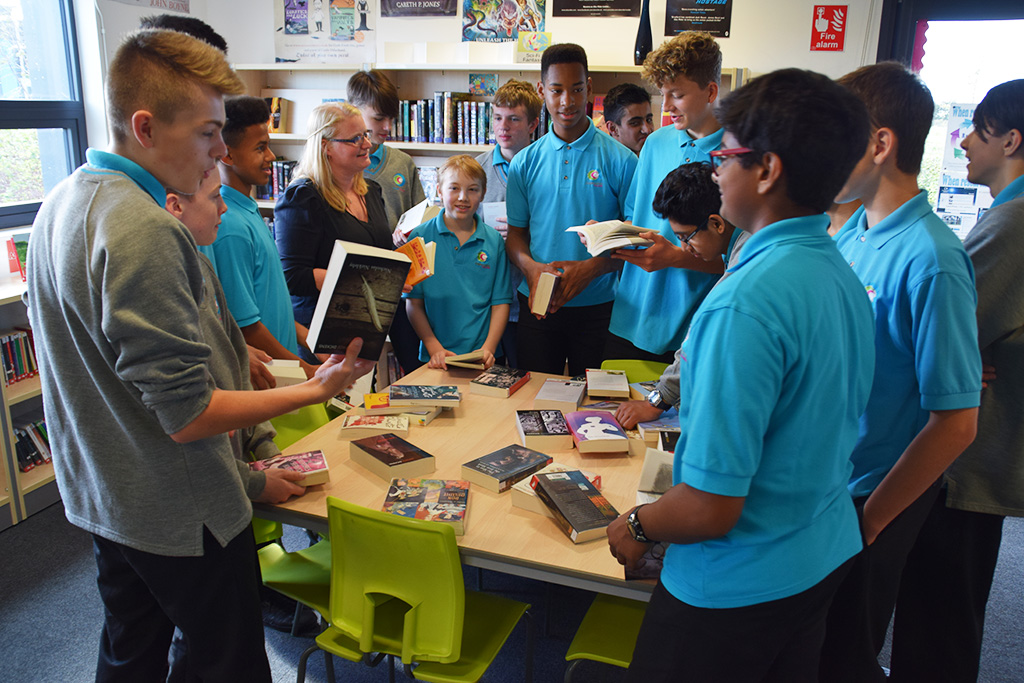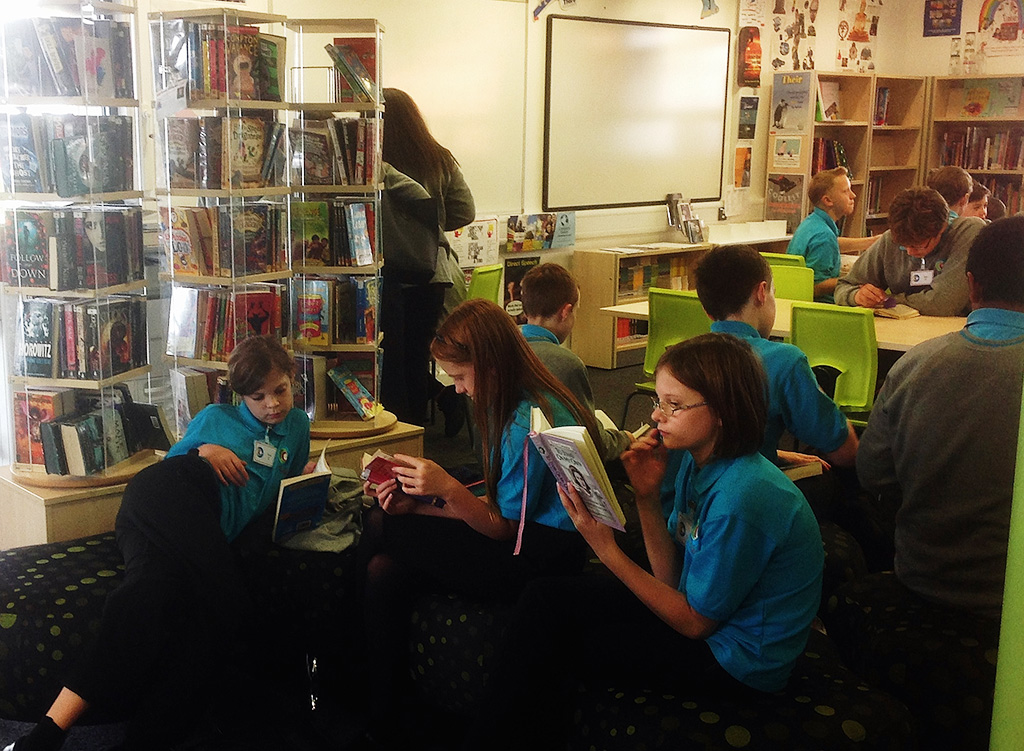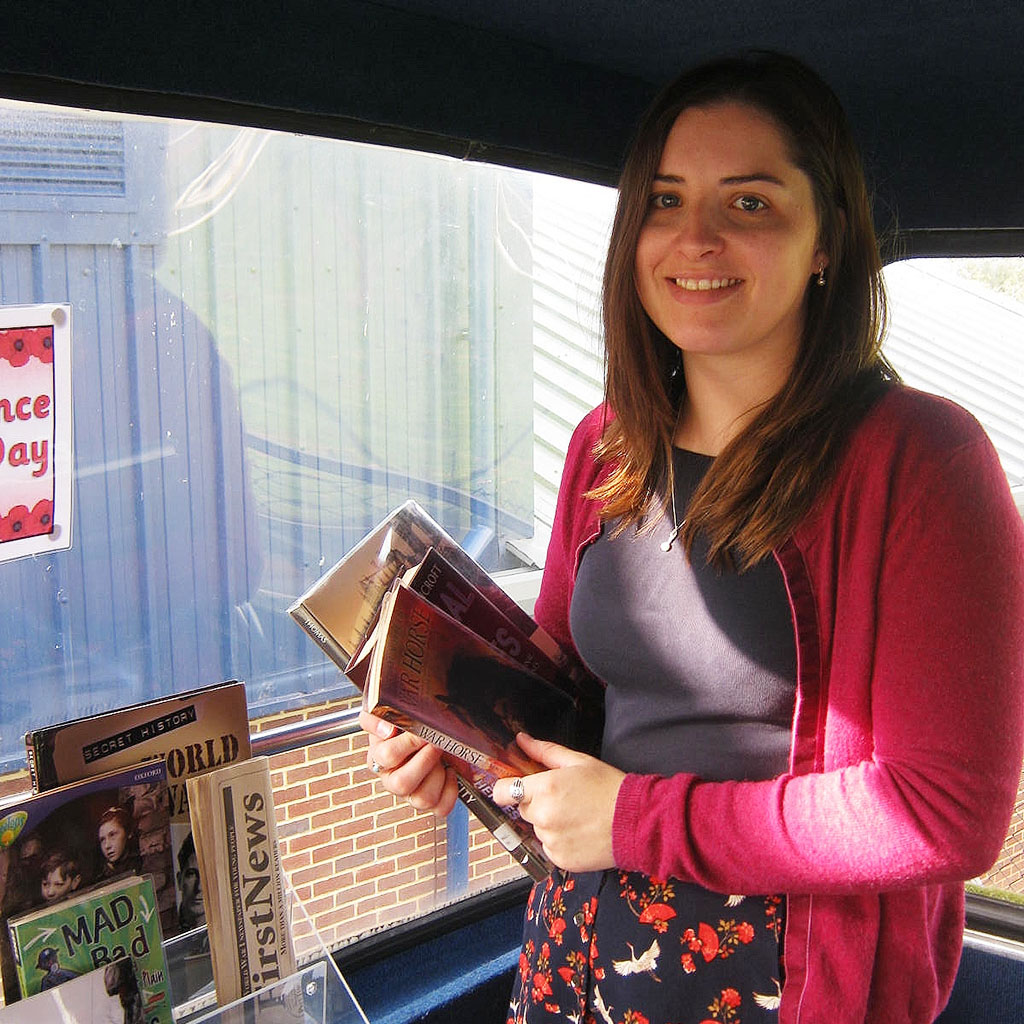Dawn Finch interviews school librarians Alison Tarrant and Sophie Chalmers, finalists in this year's School Librarian of the Year Award.

Every day the news carries more stories of cuts to education and social services, and school librarians have never been under greater threat. Brutal funding cuts hit schools and force head teachers to make difficult staffing decisions, and these all too often lead to cuts to school libraries.
The Society of Authors has a longstanding campaign to support school libraries, but why is a school librarian important beyond the obvious positive impact they have on literacy levels? Why should parents and the general populous actually care if schools have librarians or not?
Every year the School Library Association nominate a small number of school librarians for the School Librarian of the Year Award. These librarians form the Honour List for each year and one librarian is picked to take the title. I spoke to two of the librarians from the 2016 School Librarian of the Year and asked them about their work.
Alison Tarrant is the librarian at Cambourne Village College in Cambridgeshire and Sophie Chalmers is the librarian at Southbrook School in Devon. Sophie’s school is a school for children with complex learning difficulties, and her library is housed in a double-decker bus within a sensory garden. Her work is incredibly child-centred and she has a great passion for books and for nurturing a love of reading.

Alison was described in her nomination as "a walking hug, with the ability to make students quieten on approach". She built her library literally from scratch, and has gone from hard-hat and hi-vis vest, to a thriving library that is loved and valued by everyone in the school.
Hi Alison and Sophie, first up, can I ask you what drew you to the role of school librarian?
Sophie - I was drawn to the role because I suddenly realised the incredible power libraries have, they weren't just books. It was like having a classroom that could be anything you wanted, I could recreate fantasy worlds, bringing stories and the world alive, being a librarian was fun and limitless.
Alison - During my Masters we did a module on the digital world and society, and this brought home to me how much children suffer without most people ever acknowledging it. I have always wanted to have a positive impact on the world around me, and I realised that actually I didn’t have to change the world, but I could change someone’s world. School librarianship seemed like a brilliant way of doing this.

This is something I hear a great deal from School Librarians; that strong need to improve the quality of life for young people, not just their education. It’s a very rewarding job for so many reasons, but what is your favourite part of the day?
Sophie – When we can all just relax in the library and I can develop the bond I have with each pupil. Sometimes that includes listening to a story, playing top trumps, but more often it means pretending the library is a space ship and we are being invaded by aliens. This silliness makes the bus more than a library and a place where they can chill out, be themselves and develop a positive relationship with books and librarians.
Alison - Homework Club is lovely – it’s more relaxed, students bring their work and do it with their peers, or ask me for help. Seeing them progress through their work is brilliant – when a concept suddenly clicks, or just when they develop from being completely disorganised to being sorted (more or less!). It’s brilliant, and seeing their pride and encouraging their independence is an amazing feeling.
I love that you both talk about how important a sense of belonging and relaxation is in the school library. Creating that sense of “independence” and building that “positive relationship” with books is not easy. What have been your biggest challenges?
Sophie - Making myself irreplaceable and invaluable! As the only member of library staff it is up to me to enthuse everyone into supporting the library, promoting reading and books, and organising memorable reading events. My proactive role has ensured that the library has become a place everyone wants to be and more importantly increased readership and enjoyment of reading throughout the school.
Alison - Time! Time for me, time to give my colleagues. Building the school from scratch has meant that at times we’re under a lot of pressure. One thing I have found challenging about setting the library up from scratch is that there was a lack of expectations – no one was really sure what I could achieve, or how the library could support the school. People still don’t see school librarians as professionals – as with children’s literature – is the lesser regarded. I got asked by a colleague ‘when I was going to become a teacher’ – the concept that this would be a profession, that I had chosen, had never occurred to him…

I always say that my only grumble with librarians (and this is especially true of school librarians) is that you make it look too easy! Librarians have a huge and well documented positive impact on the education and mental health and wellbeing of young people, but still people don’t grasp what we do. Thankfully, the children do know how important you are and value you a great deal. If money was no object, what would you do in your school library?
Sophie - If I asked the children this question they would ask for the library hot tub they've always wanted, and another library bus joined to the current library with a slide! Actually it would be great to have special reading spaces in each classroom which were kooky and inspiring. SEN children love sensory spaces and I would love to develop this further and truly make reading a happy and positive experience. As well as developing the space itself, it would be great to be able to invite authors, illustrators and other key reading movers and shakers to the school as currently my budget does not allow this.
Alison - I’d like to give each student the chance to create their own reading area at school, wherever they wanted it. I’d love a proper outside reading area, lots more places for the individuals to sit on their own. I’d like more soft seating, and soft lighting. I’d have enough money to buy duplicates of the best books for each of the classrooms, so each classroom had its own book shelf related to topics that are being taught. I’d give each child a book to help them build a collection of their own.
Thank you to both Sophie and Alison for making time for this interview. Your passion and knowledge really shine through.
The one thing that always comes across when I talk to school librarians is that they are the very best person in the school to champion reading for pleasure, and to nurture wellbeing. Every school librarian goes that extra distance to support young and developing readers, and to engage them in a way that cannot always be done in the classroom. This, in turn, gives a young person better chances, more options, and ultimately a better future. Every child deserves this, and every child deserves to have a person in front of them with the correct skills to do the job. The reason we should care whether or not schools have librarians, is because of the huge positive impact they have on the adult that a child will eventually become. In terms of societal value, this is priceless.
If you are a parent, and are looking for a school for your child, ask to meet the school librarian. If they don’t have one, ask why.
Dawn Finch is a children’s writer and librarian and the 2016 president of the Chartered Institute of Library and Information Professionals. She is also a member of the Society of Author’s CWIG committee.